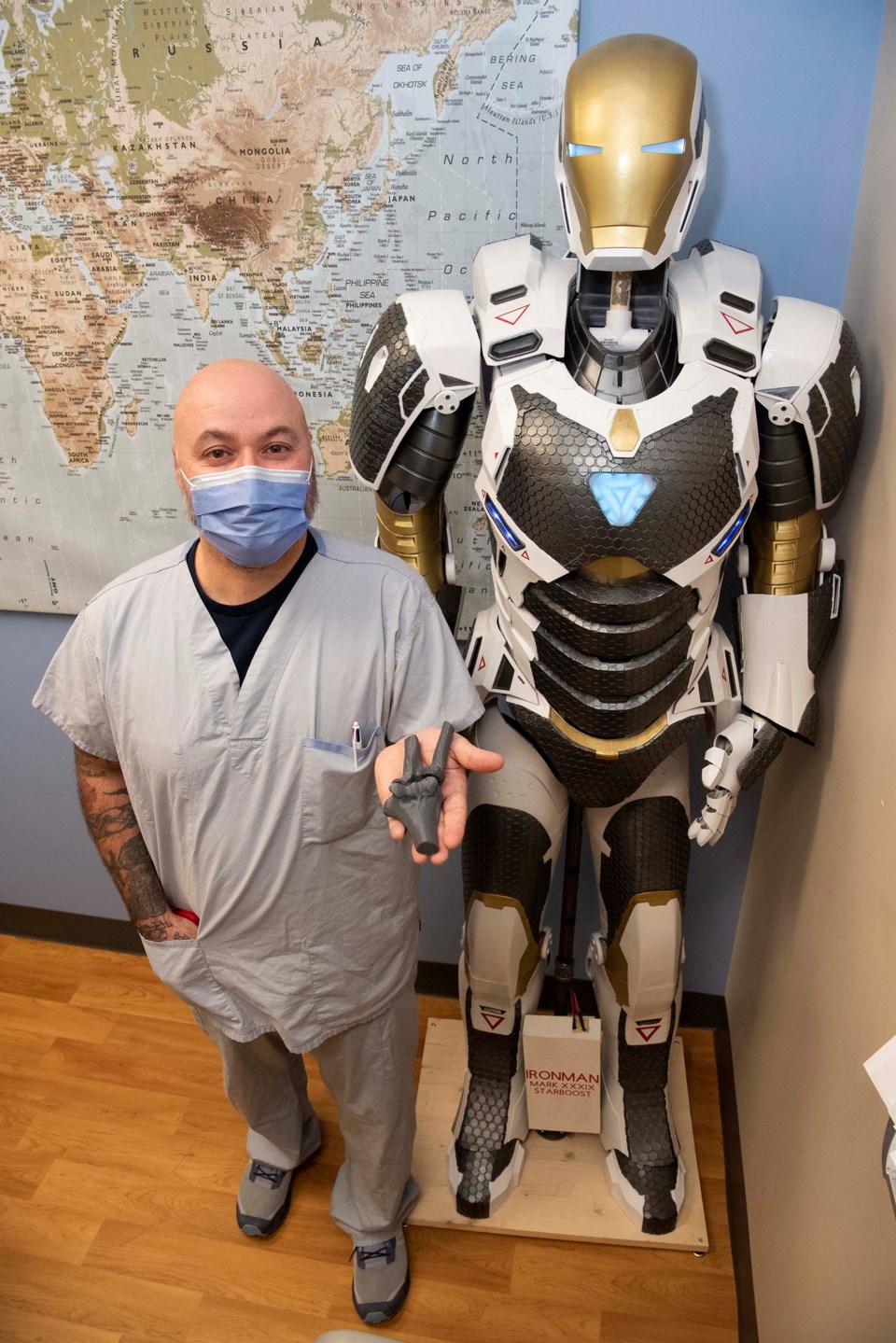Some guests at the Sturgeon Community Hospital might wonder why Megan Petryk has a nearly six-foot tall suit of robotic battle armour in the corner of her office.
The suit — a replica of one used by the comic book superhero Iron Man — is actually the work of Thomas Bowden, an orthopedic technician at the Sturgeon who has been using 3D printing to help doctors treat patients, said Petryk, patient and provider experience consultant at the hospital. Hospital staff haven’t figured out what to do with it yet, so they’ve been storing it in her office.
Press 'print' to mend
Bowden is a retired member of the Lord Strathcona’s Horse (Royal Canadians) who got into nursing after he was wounded in Afghanistan in 2008. He said he bought his first 3D printer years ago because his wife wanted to get into the hobby. When she lost interest in it, he took it up, and started printing elaborate masks, statues, and other sci-fi props for himself and his friends.
3D printing is a rapidly developing technology that can be used to make anything from cars to food to entire homes. In medicine, researchers have used it to create custom instruments, implants, and prosthetics, and hope one day to use it to print entire organs.
Bowden said his job involves a lot of work with casts and broken bones. Doctors often use scans and pictures to plan where to put screws and plates to repair bone fractures, which leads to some guesswork, as they don’t have a physical model to experiment on.
“One day I was just hanging out with a couple of doctors and said it would be kind of neat if we could print off the bone and show it to the patients,” Bowden said.
The doctors agreed. Last year, Bowden scrounged up a donated 3D printer for the hospital and started using it to print 1:1 models of bones.
“You can show the patient, ‘This is what your elbow looks like in real life,’” he said, and use the model to see how pin and plate positions will affect a joint’s movement.
In an email, Petryk said these models give surgeons more information to plan surgeries and reduce the risk of complications. One model used earlier this year helped a patient better understand the need for their surgery, making them less anxious about it. Bowden has also used the printer to create a Stanley-Cup-shaped trophy to promote hand hygiene at the hospital.
Bowden said 3D printing is a relatively new technology at St. Albert-area hospitals; he knew of one other person at the Royal Alexandra Hospital using it. He hopes someday to use it to create custom finger splints and casts for patients, which would be more comfortable and waterproof than conventional plaster ones.
Paging Tony Stark?
As for the Iron Man suit, Bowden said he printed, painted, and assembled it over the course of a year, and gave it to the hospital since it was just sitting in his basement.
“I’m a big Iron Man fan, and I always wanted to have an Iron Man suit.”
Bowden said the suit itself is a reproduction of the Mark 39 armour seen in the film Iron Man 3. It doesn’t have rocket boots or repulsor beams, but it does have LED lights in the eyes and chest piece. You can wear it — and several people have tried — but you need to be about 6’2” and very thin for it to fit properly.
Bowden said he hopes the hospital will put the suit on display for patients.
“Hospitals suck in general,” he said, and this suit could entertain the kids.




